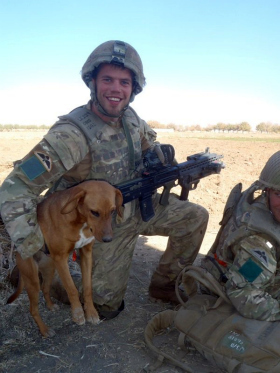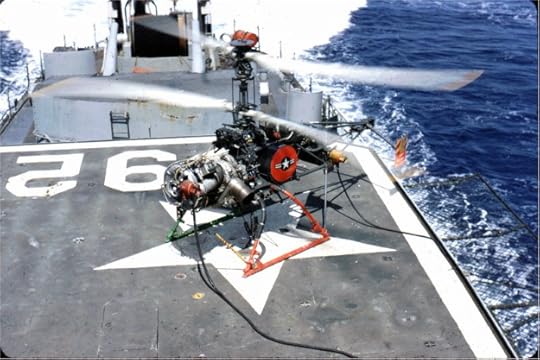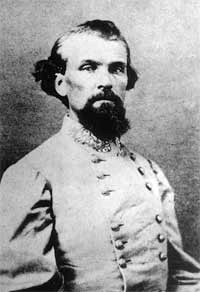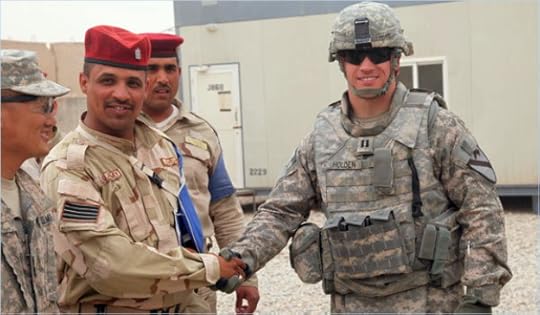Thomas E. Ricks's Blog, page 242
July 8, 2011
Rebecca's War Dog of the Week: Parachutist's family brings Peg home from Afghanistan

By Rebecca Frankel
Best Defense Chief Canine Correspondent
Peg featured prominently in Private Conrad Lewis's letters to
his family from Afghanistan and when Pvt. Lewis went home on leave for
Christmas last year he told his family that when his tour was over, he wanted
to bring Peg home with him.
Peg, short for Pegasus (the emblem the parachutists wear on
their sleeves), is a caramel colored stray dog that Lewis adopted and looked
after her at his base in Helmand Province. The dog took to Lewis a young,
paratrooper at 22, and trailed after him wherever he went -- on patrol, through
firefights, and sleeping with the unit at night. Apparently, she was a natural war dog who didn't flinch while under fire and
while "on patrols Peg would sit down when the [paratroopers] took cover, then
run alongside him as his platoon advanced." [[BREAK]]
But when Pvt. Lewis and another member of his team were
tragically killed when they came under fire while on a foot patrol on February 9,
Peg was left forlorn and without her companion.
During Lewis's funeral, friends told the fallen soldier's
family members that Peg was still at the checkpoint where Lewis had been stationed.
That's when the family decided they were going to bring Peg back to the United Kingdom
to live with them. The family knew how much this dog had meant to their son. In
March, Lewis's father told the Mirror that: "[This dog] was the link to
Conrad and the job that he did and knowing how much he loved her and had wanted
to bring her home, we wanted to complete the task."
With the help of a nonprofit organized specifically to
rescue stray and abandoned animals from Iraq and Afghanistan a daring rescue
was planned:
"Peg had to be smuggled out of the Nad Ali district by
Conrad's pals, who hid her in a bag and hitched a helicopter ride. Afghan
Police then drove her to Kabul, where she stayed at a dog shelter before being
passed fit to fly."
Peg is now in quarantine where she'll be until November.
Pvt. Lewis's family visits her often. You can watch a BBC video of Peg happily
playing with Lewis's family here.
Armed drones are far older than Tom thinks: A short history of the UAV 4 U

What if they gave a
war and nobody came? We are learning the answer to that old question, and
it ain't what the flower children thought.
In other UAV news, I see where an F-18 made a UAV-like
landing on the USS Eisenhower.
There was a pilot in the plane but he kept his hands off the controls. Look ma!
By Joseph Trevithick
Best Defense department of robotic military history
The arming of drones
really hits at a number of disparate issues. The U.S. Navy had actually fielded
a rotary wing anti-submarine warfare drone
in the 1960s that could attack targets with torpedoes. Under the direction of
the Advanced Research Projects Agency (ARPA; what is now the Defense Advanced
Research Projects Agency or DARPA) a small number of these drones were fitted
with machine guns, automatic grenade launchers, rockets, and other weapons, and
used experimentally during the conflict in Vietnam. The results of these tests
were generally favorable, but went nowhere. The Navy ceased operating the Drone
Anti-Submarine Helicopter (DASH), designated the QH-50, in 1970. Japan also
used the QH-50 in the anti-submarine warfare role. [[BREAK]]
The first USAF experiments with armed drones were conducted in the 1970s and
the results were extremely positive. The U.S. Air Force as an institution,
however, has been and still is very reluctant to explore the full potential of
armed drones. What they have done recently is more in response to the use of armed
drones by the intelligence community, by the U.S. Army, and by the U.S. Navy,
and prodding from civilian leadership.
For the USAF, the issue of unmanned drones as a replacement for combat aircraft
hits hard at the arguments that led to them becoming a separate service in the
first place. The USAF has a serious fear that unmanned aerial vehicles will
lead to an "Air Force" led by individuals who have never flown
anything. Uniformed USAF leadership is almost entirely comprised of pilots. As
the top USAF brass sees it, the USAF flies things, and it doesn't fly them from
mil-vans in Nevada. The U.S. Army has
less of a problem with this as its top leadership has generally not come from
the aviation branch. The U.S. Navy and U.S.
Marine Corps are similarly more accepting of UAVs.
The success the U.S. Army is having in
deploying their own organic armed drone units might well prove the deciding
factor in really pushing the USAF to make greater use of such things. The USAF
has generally responded vigorously to defend its turf from anything it sees as
an attempt by the U.S. Army trying to claim its roles and missions. This has,
since the 1960s, caused the USAF to make 180 degree policy turns on numerous
systems and capabilities that it has previously expressed either no interest or
negative interest in.
I agree though, that drone strikes in general rarely make the front page. Unlike
the cruise missile strikes or large air operations of old, they've so
frequently employed as to become not newsworthy. Perhaps this is the real
change drones are having. With their ability to provide a more persistent
coverage of a target and be more consistently used without the need for a large
build-up, it's easier to sweep them under the rug so to speak.
Joseph Trevithick , a
research associate at GlobalSecurity.org, holds a master's degree from the
Georgetown University in conflict resolution.
Ta-Nehisi Coates dings Shelby Foote

I didn't realize old
Foote was so goofy:
"I would fight for the Confederacy today if the circumstances were
similar." This really disappoints me --
and I speak as a descendant of someone who (according to a family history
produced by them Latter-Day
Saints) was pals with Nathan
Bedford Forrest.
Glad to see Coates
pursuing this question. In a
follow-up, he notes that Foote managed to get court-martialed out of the
Army during World War II. I think you had to screw up pretty badly to actually released
and sent home. Not even Jim Brown
got that treatment.
July 7, 2011
Lament of an AfPak Hand: I've been abandoned and misused in Kandahar

For a program
stamped expressly as the top personnel priority of the chairman of the Joint
Chiefs,
the AfPak Hands initiative sure seems to have a lot of participants who
feel abused and misused by the process. Just listen to this poor guy working
with the U.S. Army Corps of Engineers ("USACE") in the south:
By "A.P. Hand"
Best Defense guest
columnist
Four months of language training in one of
the most difficult languages in the world, Pashto -- where I worked hard enough to
come out with a 1/1 language proficiency in four months. And off to a two week COIN
Academy at Camp Julien, Kabul. Afterwards I was dropped in Kandahar and
forgotten about.
I was supposed to have a 1 month immersion in
order to help solidify my language and cultural training. It didn't happen. This
is when I had a feeling that all the scuttlebutt during language training was
probably truth. Four and one half months later, I'm still trying to force a
rectangle into a round hole to work out my AfPak intent into my assignment here
in Kandahar with the USACE and I find a memo that was dated the month that I
arrived in theatre -- the month I attended the COIN in Kabul.
This memo is attached
and it tells you just how much of a priority this personnel request was given
to the CJCS's request. It seems that the USACE officer shortfall trumps the
CJCS's personnel shortfall. See the
attached memo for my meaning.
I am not offering my opinion as a disgruntled
employee-type communiqué. I just want someone to help me get the word out that
maybe the CJCS is not aware of how his top priority is being run in the war
zone. I spoke to Captain Muir as well as his predecessor Captain McLachlan a more
than a few occasions and they continue to tell me that the intent was there but
it changed. [[BREAK]]
If you see the memo, it's from the USACE Trans
Atlantic Division CG to our in-country AfPak Hands "handler" Captain McLachlan. The
USACE mission was so critical it requested a fill with AfPak Hands in "billets
that no longer justify the AFGHAN Hands designation." I am in one of those billets that is no longer
an AfPak Hands intent billet and I am outside the AfPak hands use for the
entire year that I'm here. So if we can give up 4 critical AfPak Hands, Para 6,
to fill USACE positions no longer intended as AfPak , what does this say about
the personnel priority? Six more USACE positions are listed in Para 5 for
continued sourcing. I spoke to some of them and they tell me they are doing the
same thing that I'm doing as a USACE OIC, which is engineering management, not
AfPak missions. Not outside the wire, not off the FOB.
As I said before, the AfPak Hands lost a
minimum of four hands for one year each as it shows in Para 6. The others are also
other career fields that I am not privy to contact with. This is just from the
engineering career field that I am speaking. I can say that I am very
disappointed to be traded to USACE for my first year and not given the top
priority chance that I was made to believe was the reason behind AFPAK.
At this point, 8 months into the year, I've
lost more than 75 percent of my language skills and I lose more every month that I
continue to work as an Office OIC for the Corps of Engineers. The USACE is a
good deployed opportunity for an engineer, but it's not an AfPak intended job
and the CJCS top priority has been trumped.
This email could end my AfPak career if they
see it as a whistle blowing attempt. I am committed to my effort in this war. This
is why I joined-volunteered-for AfPak duty. I wanted to make a difference.
"A.P. Hand" is based in Kandahar, Afghanistan, at least
until his boss reads this.
Ballistic missile defense and coastal artillery: Basically similar endeavors?

I'd be interested in
reading a study comparing the two -- 19th century coastal artillery and 21st
century ballistic missile defense. They strike me as similar -- both intended
to use technology and money to fend off the foreigners, and perhaps with a
slight isolationist tinge in their backing, because they promise to allow us to
dispense with expeditionary land, sea and air forces. Yet both are of doubtful
military efficacy. Does anyone know of such a work?
Also, did coastal
artillery ever really do
anything, aside from having a possible deterrent effect that can neither be
proven nor disproven?
Modern love: Cupid toting an AK-47

A couple of weeks ago I happened to catch a show by Eilen Jewell, a strong singer
with a first-class band. I enjoyed both her own songs and her terrific covers
of Loretta
Lynn and Johnny
Kidd. She did one weird tune I didn't know, I think written by her, about a
modern Cupid carrying an assault weapon: "He don't take aim/ He just
bang bang bang."
July 6, 2011
Kaplan reviews Kissinger's China book

One of the
privileges of having Robert
Kaplan as my officemate at CNAS is that
I can ask him to review books. One of his privileges is that he can send along
said review accompanied by a note stating, "leave it just as it is." So I did.
By the way, the current reading of
General Dempsey, the current Army chief of staff and future chairman of the
Joint Chiefs, includes Kaplan's latest book, according to an article that
ran awhile back in the New York Times:
One was "Managing the Unexpected: Resilient Performance in
an Age of Uncertainty," by Karl E. Weick and Kathleen M. Sutcliffe. Another was
"The Starfish and the Spider: The Unstoppable Power of Leaderless Organizations,"
by Ori Brafman and Rod A. Beckstrom. And the third was "Monsoon: The Indian
Ocean and the Future of American Power," by Robert D. Kaplan."
Stephen Walt also reports
that he plans to read Monsoon this
summer.
While I'm on the
subject, here's another piece on Kissinger
and China. And I also am hearing good things about this
book.
And now, heeeeeere's
Bob:
By Robert Kaplan
Best Defense
officemate
Henry Kissinger's On
China really gets rolling on page 90, when we get to the Communist
period in Chinese history. Then, for the next 440 pages, the reader is riveted.
Kissinger, it is often forgotten, has always been adroit at drawing historical
portraits, whether of Metternich and Castlereagh in his graduate school days,
or of Chinese communist leaders in his most recent book, written in his mid- to
late-'80s. Kissinger has made over 50 trips to China, and this book sparkles
precisely because it is in large part a memoir. Here is just a taste of what's
in store for the reader:
"Having grown accustomed to
Mao's philosophical disquisitions and indirect allusions and to Zhou's elegant
professionalism, I needed some time to adjust to Deng's acerbic, no-nonsense
style, his occasional sarcastic interjections, and his disdain of the philosophical
in favor of the eminently practical. Compact and wiry, he entered a room as if
propelled by some invisible force, ready for business. Deng [Xiaoping] rarely
wasted time on pleasantries, nor did he feel it necessary to soften his remarks
by swaddling them in parables as Mao [Zedong] was wont to do. He did not
envelope one with solicitude as Zhou [Enlai] did..."
Just as you gain some familiarity
with the various Chinese dynasties after reading say, English historian John
Keay's very fine China:
A History, you likewise gain some familiarity with all of the leaders
of China's latest dynasty - from Mao to Hu Jintao - after reading this book. Kissinger,
with all the controversy that surrounds him, will be recalled as a formidable
historical figure in part because he writes so much better than any other
secretary of state of his era.
Josh Holden has a great attitude

From Josh
Holden, a West Pointer who spent five years in baseball's minor leagues and
then, after being cut, went back to the Army as promised and pulled
back-to-back tours in Iraq: "Personally, it couldn't have worked out
better for me. I got to chase a dream, and now that I'm a soldier, I hope that
I am giving the Army as much as it has given me."
Memories of World War II: The event that sent Rod Serling into 'The Twilight Zone'

From today's Maureen Dowd
column:
Serling also had a devastating
experience while serving in World War II. During a lull at the Battle of Leyte
Gulf in the Pacific, he was standing with his arm around a good friend and they
were having their picture taken. At that moment, an Air Force plane dropped a
box of extra ammunition that landed on Serling's friend and flattened him so
fatally that he couldn't even be seen under the box.
"Many 'Zone'
episodes are about that split-second of fate where somebody arbitrarily gets
spared or, absurdly, does not," Brode said.
Wikipedia reports
that Serling was in the 11th Airborne Division, and that the
incident he witnessed was slightly different, that a private named Melvin Levy
"was in the middle of a comic monologue as the platoon sat resting under
a palm tree when a food crate dropped from above, decapitating him as the men
watched."
Naming the phases of the Afghan war

The
Ink Spots has a good proposal for better names for phases of the Afghan war
than "Consolidation II" and so on:
Bombing the Piss out of the
Taliban - Sept. 11, 2001 to Nov. 30, 2001
Escape from Tora Bora - Dec.
1, 2001 to Dec. 31, 2001
General Indifference - Jan.
1, 2002 to March 18, 2003
Economy of Force - March 19,
2003 to Nov. 30, 2009
The Good War - Dec. 1,
2009 to June 21, 2011
The Expensive, Disappearing
War - June 22, 2011 through a date to be determined
Thomas E. Ricks's Blog
- Thomas E. Ricks's profile
- 436 followers



